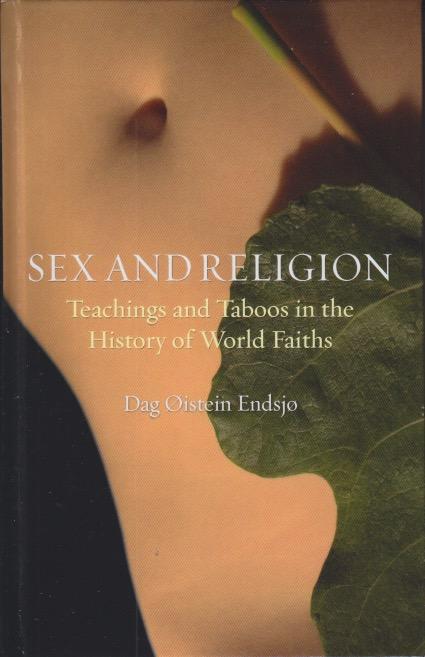
Important books often suffer because of poor distribution. There are really only five publishers in English (“the big five”) that can reliably get their books into commercial bookstores. I was reminded of this when reading the very important book Sex and Religion: Teachings and Taboos in the History of World Faiths, by Dag Øistein Endsjø. The book is virtually unknown here in the States for a number of reasons. It was originally written in Norwegian. The author isn’t a household name. The publisher who bought English rights is British. It’s not comfortably priced. None of this, however, gainsays its importance. This book has much to teach us about hypocrisy and how religions codify prejudices, and, despite rhetoric, still value women less than they value men. Religion is intimately connected to sex. As I’ve written before, no religion ignores it completely.
Endsjø offers here a reasoned, logical, and religiously expert analysis of several aspects of human (and to a degree, animal) sexuality. Contrary to much monotheistic teaching, sex is often treated as a good thing—within limits—in world religions. Of course, that allows monotheists to step in and claim all others are pagans and debased, a tactic as old as the Good Book itself. Religions’ real enemy, it seems, is education. We should be open to compare what others believe—the wisdom their elders have passed down, just like the disciples. And we should be honest about the fact that we change the rules to suit our situation. One of the starkest examples of this Endsjø points out is that the Bible is much more stridently against divorce (which evangelicals now freely use) than homosexuality. But guess which is the political issue?
Religions change, no matter what any true believer says. We adapt to all kinds of new situations and new information, except when it comes to sexual behaviors we don’t like. Even though most religions prohibit murder, the punishment for sexual offenses is frequently more stringent. In other words, as Endsjø points out, religions care less for human life than for their own sexual prejudices. The fact is just about all monotheistic religions have a male god and favor males over the other half of the human race. It even seems likely that Muslim over-reactions to homosexuality arose from copying evangelical Christians in the west. This is an important book and if religious leaders of all stripes read and comprehend it, we would find ourselves in a much more human, and humane, world.
